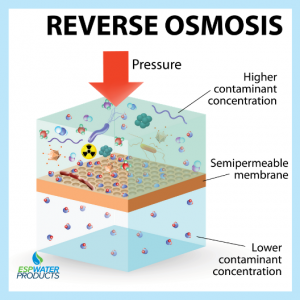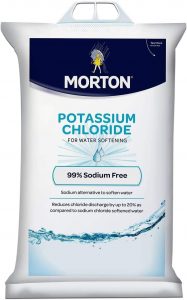Table of Contents

For this purpose, it is essential that you always make sure the water you consume is of the utmost quality.
Softened water is preferred by many but if you are not sure about the quality of softened water, then continue reading this article on how to make softened water drinkable as well as some easy alternatives if you can’t consume soft water.
Here’s an informative video on softened water:
How To Make Softened Water Drinkable
Following are some ways to safely you can drink softened water;
Reverse Osmosis filter
This is by far the best method to make softened water drinkable because the reverse osmosis method not only purifies and filters the harsh minerals from the water but it also removes the excessive amounts of salt present in the filtered water. This makes the softened water absolutely safe and pleasant to drink. It also improves the taste of water and eliminates any chemical smell.
This method does not even require much maintenance work as whenever you feel like your filters have given up, you can ask the professionals or technical staff to give it a cleaning so it can perform well again. It is a bit problematic in the way that whenever you require a litre of water, 90 litres go down the drainage and are wasted so it would be wise to invest in a system that doesn’t waste water.
Sodium ions
The sodium ion process exchanges the sodium components with that of the minerals such as potassium, magnesium, and calcium. It is used to convert hard water to soft water and helps purify the water, making it suitable for drinking. This ensures that your body and mental health remains in check, though people with sodium strict diets should always consult a physician before its intake.
Use of Potassium chloride
Similar to the sodium chloride salt pellets, potassium chloride pellets are used to soften the water through the same process, and in this case, the harsh minerals are exchanged with potassium chloride ions to soften the water.
The main benefit of using potassium chloride to soften water is that it doesn’t add sodium to the water but also, it removes about 90 percent of sodium already present in the water, making it suitable for consumption.
Potassium chloride is good for the health of the entire body including blood pressure regulation, nerve & muscle function, and bone health. Always make sure to use the potassium chloride in the correct dosages.
Alternative: Use distilled water
If you have a problem with drinking the softened water or you are on a strict low sodium diet, this option will work in your favor. The distillation process includes converting the water into vapors and then converting it back to liquid, This process purifies the water, making it drinkable.
Distillation not only purifies the water but also removes most diseases caused by bacteria present in the water such as diarrhoea. It also eradicates harmful chemicals and their effects making the water completely safe to drink.
FAQS
Is the softened water drinkable?
Yes, soft water is absolutely drinkable and is a healthier option than tap or hard water. Because it purifies the water and some even filter out bacteria and viruses, it makes the softened water an ideal choice. Those who have sodium-related issues need to be extra careful as it might be problematic for their body.
Does the sodium level increase in the soft water?
People often forget that the softening process doesn’t add salt to the softened water rather it affects the resin that reacts with the hard minerals. Also, the sodium exchange ions that are increased in the softened water are not the same as sodium chloride or salt itself.
Is there a reason why I should stop drinking soft water?
Well, that depends on the validity of the reason; if you feel like it is affecting your diet, blood levels, or causing you stomach ailments or dizziness, then you should first consult your doctor and then act on it. Otherwise, softened water is good for drinking for individuals who are not affected by it negatively.
Final Thoughts
Water is an essential part of our lives and the main source which keeps us alive and functioning so it is natural that we are concerned about its way of consumption. Though water softeners provide the best quality of water some people might have issues with the amount of sodium present in the water. It is essential that you know your conditions and preference before investing in water softeners.
Adding to your health, also get a water softener that fulfils all your and your family’s needs as well as one that fits your budget and does not require a lot of upkeep.



